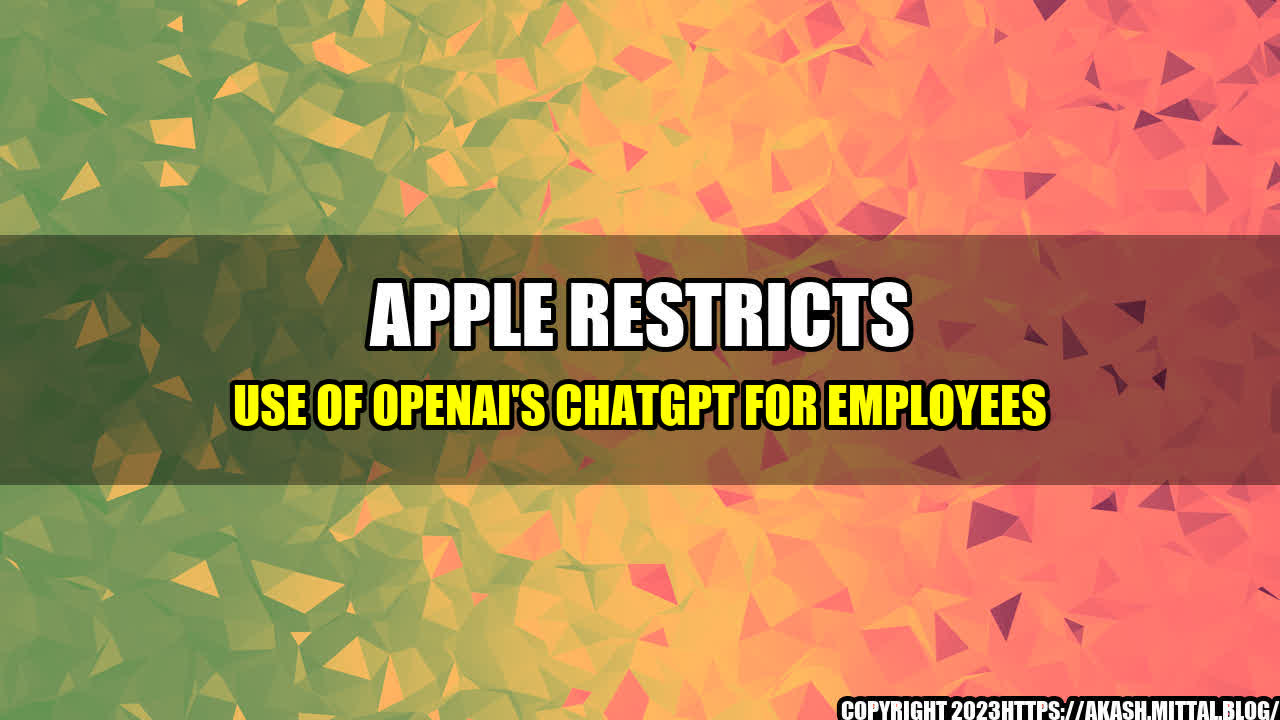OpenAI's ChatGPT is an AI-powered chatbot that has gained popularity in recent years for its ability to generate human-like responses to text input. Apple reportedly began using the technology in-house to automate customer support and other internal processes.
However, concerns arose about the potential for ChatGPT to reveal sensitive information and trade secrets. The technology, which is pre-trained on a large dataset of internet text, has the ability to "learn" from new input and generate responses that may inadvertently reveal proprietary information.
Apple's decision to restrict the use of ChatGPT by employees is just the latest example of a company grappling with the risks and benefits of AI-powered technologies. While AI has the potential to greatly improve efficiency and productivity, it also poses new challenges related to privacy and security.

Curated by Team Akash.Mittal.Blog
Share on Twitter Share on LinkedIn